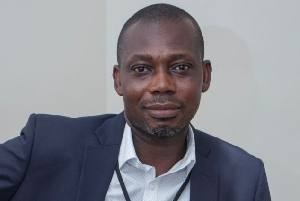Chief Revenue Officer and Head of the GRA IT Training Centre, Isaac Kobina Amoako, has explained how the Ghana Revenue Authority (GRA) is able to track the income of individuals in the creative industry, even when such earnings are not declared.
Speaking at Joy FM’s Roundtable discussion on September 6, 2025, which focused on ‘Taxation and the Future of the Creative and Digital Economy’, Kobina Amoako disclosed that even though creatives fall under the informal sector, the Authority relies on three main approaches to gather information about the earnings of creative professionals.
EXPLAINER: How taxes work at your favourite ‘Detty December’ events
According to him, the GRA sometimes depends on informants who provide tip-offs on the financial activities of individuals.
In such cases, when a creative professional becomes a person of interest, the Authority assigns a unit to investigate, and informants who assist are often given a 10% reward for the information they provide.
He added that the banks are another source of information. Once the GRA has credible evidence that an individual is earning income, they can approach financial institutions to examine how funds are deposited and moved in and out of the person’s account.
He said this process allows the Authority to determine the flow of income and whether the individual is properly accounting for taxes.
Creative industry entrepreneurs under 35 eligible for five-year tax holiday – GRA
But for those who try to avoid banking systems, the Chief Revenue Officer said the GRA is also trace money that may be kept with friends or associates.
He noted that if there is intelligence that a creative professional earns money but does not use a personal bank account, the Authority can pursue anyone believed to be holding funds on their behalf.
Kobina Amoako further mentioned that the GRA is empowered to use all state resources at its disposal to locate the income of individuals, whether they are formally registered or not.
“The same way we track all other income earners is the same thing that we use. Either by informants who tell us, either by third party, we may go to your bank account. If we have information that you are earning income, we will go straight to your bank account and observe how you are getting money into your bank account.
“If you don’t have, there could be something else. You might have a friend who have your money and if the information is that oh, you earn income but you don’t have a bank account. But it is with somebody. GRA can go to that somebody and collect. So we track across wherever we get information,” he said.
He added, “I would use all the assets under the state to find out where his income is sitting. Whether he is registered or not. When his name is being mentioned, of course, there’s a unit in GRA who will become interested in him.”
Also catch the latest episode of Talkertainment with Ghana’s most-sought-after MC/Hypeman, Kojo Manuel, below:
Will Ghana pass the Anti-Witchcraft Bill? Find out in the latest episode of The Lowdown on GhanaWeb TV in this conversation with Amnesty International:
AK/EB



